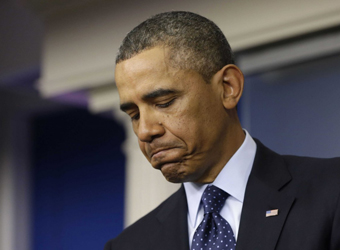President Barack Obama has ended the longstanding policy that grants residency to Cubans who arrive in the US without visas.
The 20-year-old policy allows Cuban migrants who reach US soil to become legal permanent residents after a year.
In exchange, Havana has agreed to start accepting Cubans who are turned away or deported from the US.
Many Cubans in the US say Washington is rewarding a regime which has failed to address human rights concerns.
But President Obama is trying to continue the thawing of relations with Cuba in his final days of office.
He said: “With this change we will continue to welcome Cubans as we welcome immigrants from other nations, consistent with our laws.”
•There were more than two million people of Cuban ancestry living in the United States in 2013, about 68% of whom lived in Florida
•The number of Cubans entering the US has increased significantly since President Obama began his rapprochement with the island’s government. In the 2014 fiscal year, 24,278 Cubans arrived in the US. Nearly double that number – 43,159 – arrived in 2015, and more than that arrived last year
•Public opinion polls suggest that recent arrivals and Cuban-Americans born in the US are more supportive of warming US-Cuba relations than those who arrived before 1980
In a statement on state television, the Cuban government praised the move as “an important step in advancing relations” between the US and Cuba.
It is unclear where relations between the two countries will go now.
Mr Obama’s successor, President-elect Donald Trump, has taken a much tougher stance and could reverse the change.
Until now, the so-called “wet foot, dry foot” policy has applied solely to Cubans, tens of thousands of whom reached US soil last year, including by land.
Thousands of other Cubans are intercepted at sea every year by the US coast guard before they can get a dry foot on land.
Immigrants from other countries who come to the US without a visa could be arrested and deported.
There have been two key parts to Washington’s policy towards Cuba for decades – a carrot and a stick. The stick is the US economic embargo on the island – that can’t be removed without the approval of Congress.
But the carrot that has been dangled before Cubans is a special immigration right known as “wet foot, dry foot”.
Under that policy, Cubans who manage to get a single dry foot on US soil have the right to residency without a visa and can apply for citizenship.
The Cuban government blames the measure for the brain drain on the island and for encouraging thousands of people to risk their lives each year in attempts to make it to the US on rickety rafts.
In the US itself, it has also provoked anger among other Latin-American lobby groups who feel the policy unfairly favours Cubans and grants them an immigration status well above that of other Latinos.
The latest wave of Cubans trying to reach the US are economic migrants like any other in the region, they argue, and not political refugees.
With the recent thaw in relations between Washington and Havana, it always seemed likely that the policy had its days numbered – why provide an extra incentive to Cuba’s people to escape if the communist island it it’s no longer your enemy?
The Obama administration decision to remove the long-standing measure is probably its last act in an extraordinary period of change under the outgoing president.
Felice Gorordo, a Cuban American from Miami and a former Obama White House staffer, told the BBC this was an important step in the normalisation process and a bold move from the president.
“Cuba will forever be an integral part of President Obama’s legacy and I think he wanted to leave office knowing he made as much progress as he could to help define a new chapter with the Cuban people.”
Florida Senator Bill Nelson said: “I believe changing this outdated policy – in order to be fair to all and also to prevent people from abusing the system – is the right thing to do.”
But Miami Mayor Tomas Regalado, a Cuban exile, blasted Obama for giving President Castro a parting gift.
“This is just a going-away present from Obama to Raul Castro,” he said.
Mr Regalado does not believe ending the policy will slow the flow of Cubans coming to the US. All it does, he says, is throw the process into question.
Source: BBC



